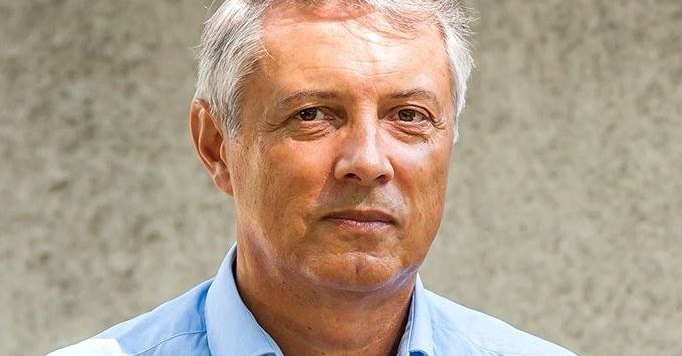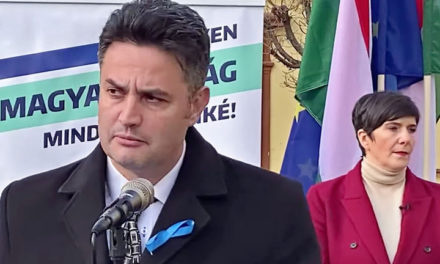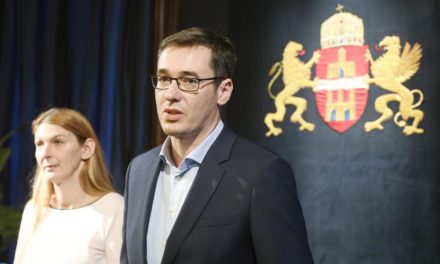Without disputing the scientific analyzes and conclusions drawn by historians, according to my own version, we underestimate the possibility of the individual and very often replace it with the impossibility of collective responsibility.
We have learned: historical conflicts culminate in military confrontations, the background of which is the acquisition of target areas, the possession of mineral deposits or simply the guarantee of security provided by the conditions and conditions necessary for life, such as water, agricultural land. It cannot be disputed that there are real reasons, but an important question still emerges from the visible multitude of objectivity, namely, why do the guns sound at a certain time? At any other time, the land, mineral resources, and livable area to be acquired could have attracted the attention of those who wanted to possess it, that is, those who wanted to start wars.
This is certainly when the human factor enters the process. A leader who possesses power and, consequently, has the ability to act and, of course, motivation, is the president of a great power - or just an "aspiring" country - the head of government, the leader of the party exercising power. Because the saying is true:
"Follow the path of money and you will understand even the most complicated connections!"
But without the will of the human factor, no clever conspiracy can achieve success, and the story, i.e. the war, cannot even begin. It is no speculation that every age had its own "support system" of background power. It is not even excluded that the same force field emerges through historical eras, just as today's progressive liberalism is nothing more than the reincarnation of communism that has already been defeated once. The advocacy that exists in this way usually achieves its goals at the expense of the majority, of humanity.
However, the personality of the leader in the decision-making situation is essential in the outbreak of wars. Leadership responsibility and opportunity is much more decisive in history than we might assume.
Without disputing the scientific analyzes and conclusions drawn by historians, according to my own version, we underestimate the possibility of the individual and very often replace it with the impossibility of collective responsibility. The relationship of decision-making (often blinded) or decision-less (thus powerless) state leaders to each other and to challenges has often led our existence to a dead end. Invisible force fields that are ready to be manipulated from the background - those that smooth the path of money - are only capable of marking directions. Even if they have built up an amazing operational position, for example in the form of NGOs, i.e. pseudo-civilian organizations. They are able to take action, lead crowds, almost "talk them out of life" by making their craziness fashionable, by forcing them to turn away from normal life. However, the final push is always made by one person, the holder of power.
It's like bowling, or its more popular form: kugli. Even if you only aim at one puppet with the bullet, you're almost certain to hit more times than you'd like. Pressing the start button, which signals the start of a combat action, is motivated and inspired by a specific, in many cases subjective, factor on the part of the person at the top of the power. It is even natural that he does not want a series of events with great bloodshed, he wants to "merely" deal with a problem, cover it up or force it on his environment.
In order to prove the above reasoning, it is important to prove all this with examples. We live in an age of continuous wars in the 21st century. century, whose beginnings go back much earlier. The renewed Palestinian-Israeli armed clashes, for example, have a historical background that goes back hundreds of years. However, in the intensified escalation of the past few days, the individual interest of a leader can be discovered. The basis of the power of the 86-year-old Palestinian President Abbas has always been the continuous escalation of the Palestinian-Israeli conflict. With this, he achieved the support of the majority of radical parties, including the Palestinians, and the stability of his personal power for many years.
In another example, the role of the President of Russia, Vladimir Putin, can be seen strongly. There are several objective reasons behind the military attack launched against Ukraine. These include pro-war American economic interests as well as many other macro-level political factors. But it is impossible that Putin's "anger" (which deserves analysis) did not play a role as a precursor to the attack order. He is the one who, whatever he did, was only given a negative connotation in the Western media capable of influencing public opinion, while under his presidency, the previously disintegrated Russia became a military and economic power again. He was spectacularly humiliated in international forums and his statements were silenced. It is therefore possible that a series of frustrations played a role in the fact that despite the provocation, today there is an armed conflict between Russia and Ukraine.
Speaking of Ukraine, I would be careful with the term war - rather, an armed conflict connected to a regional area - because otherwise how could ships loaded with produced and harvested wheat leave the Black Sea ports in the event of a total war? Whatever we call the destruction of people on the battlefields of Ukraine, the leadership's determination is present in this too. We can't only think of Ukrainian President Zelenskyi, who in his role on the big stage is bankrupting his country like a bad rascal, while he has already abandoned all the nations and leaders of the world among those who do not submit to his requests/instructions. Zelensky's room for maneuver should be narrowed, because among the strong opponents of the Russian-Ukraine peace deal is Joe Biden, the president of the United States. His son's economic interests can be seen not only in the acquisition of Ukrainian agricultural land, but also in conducting all kinds of war business.
However, examples prove that the role and responsibility of leaders is also present in the shaping of history in a positive sense. There are those who, with their views and decisions, help protect the values of the world. As a result, we as voters across Europe and beyond are "only" tasked with finding the deserving ones and selecting them judiciously when the time comes.
Featured Image: Facebook












